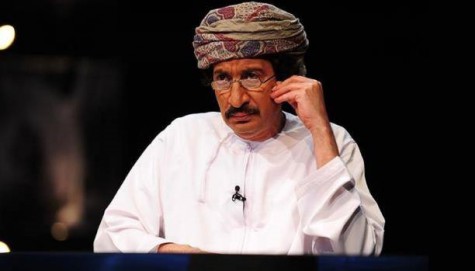Throughout Oman, freedom of speech is nonexistent as the government routinely detains activists, academics, and other critical figures for publicizing any dissent of the government. Free expression is heavily constrained and even criminalized under the law – in 2018, Oman updated its Penal Code, ultimately further increasing restrictions and allowing for more severe punishments for criticizing the government. Article 97 states that the “punishment for anyone who either openly or by means of publication commits slander against the Sultan and his authority, or denigrates him personally, shall be imprisoned for a term of not less than three years and not more than seven years,” providing for notable increase from a previous punishment ranging from six months to three years for such crimes. Additionally, due to the vagueness of most articles in the Penal Code, Omani activists, academics, and journalists are frequently imprisoned on free expression related charges if their work, writings, or social media are deemed critical of the state or the Sultan. Oman’s Sultan Qaboos bin Said al-Said has used these laws to shut down critical newspapers, like Azamn, and charge other activists with crimes such as “misusing the internet” or “disturbing public order.”
In the past few years alone, many prominent activists have been detained in Oman for directly or indirectly critiquing the government. Abdullah Habib, a prominent writer and online activist, was arrested in 2015 and charged with the crimes of spreading hatred, blasphemy, and using the internet to publish material that prejudices religious values or public order for posting on Facebook about political and human rights issues within the country. While he was released on 4 May 2016, a court sentenced him to three years in prison on 8 November 2016. On 2 April 2018, the Appeals Court in Muscat upheld the three-year sentence, but suspended two-and-a-half years of his sentence, and sent him to Samail Central Prison to serve the remaining six months of his term. While in prison, Habib was routinely denied regular access to his medicine and saw a rapid deterioration in his health. He was fortunate enough to later be released from prison in June 2018, ahead of his scheduled release in October, following a pardon from Sultan Qaboos on the occasion of the religious holiday Eid Al-Fitr.
Other activists, including Hassan Al-Basham, have been targeted and imprisoned in Oman for exercising their right to free expression. A prominent online activist and former diplomat, Al-Basham was arrested on 17 September 2015, released for several days, and subsequently rearrested on 25 September 2015 and subjected to prolonged interrogations. He was sentenced to three years in prison for “using the internet in what might be prejudicial to religious values” and “insulting the Sultan,” along with being fined 500 Omani Rials, or 300 US Dollars, on 8 February 2016. Similar to Habib’s situation, Al-Basham was deprived of basic medical supplies in prison and his health deteriorated rapidly. However, while attempting to appeal his sentence again in November 2017, Al-Basham’s legal representatives were not permitted to display his medical records in court and his sentence was upheld. Hassan Al-Basham passed away on 28 April 2018 in prison due to a sharp drop in his blood sugar levels and lack of first aid provided by prison authorities.
Most recently, in October 2018, two more individuals were detained in Oman under charges relating to free expression. Journalist Sultan Al-Maktoumi and activist Salem Al-Arimi were arrested without warrants – for Al-Maktoumi, it has previously been presumed that he was targeted as a means to control his criticism ahead of Israel’s Prime Minister’s visit to Oman a few days later. Under Article 102 of Oman’s Penal Code, “anyone who openly commits slander against […] a foreign head of state […] shall be [imprisoned] for a term of not less than three months and not more than three years.” Since their arrest, both Al-Maktoumi and Al-Arimi have been denied the right to legal counsel and from seeing their families for a period of time.
Oman’s oppressive laws surrounding freedom of expression have made it nearly impossible to push for progressive change, leaving citizens like Abdullah Habib, Sultan Al-Maktoumi, Salem Al-Arimi, and Hassan Al-Basham lacking access to fundamental human rights provided to them under international law. Ultimately, Oman’s current legislation surrounding free expression only promotes further self-censorship and endangers the ability of human rights defenders, activists and journalists to call for accountability and address rights abuses on the ground.
Ethan Cook is an Advocacy Intern with ADHRB.





